Jewish Interfaith Marriage - Contemporary Attitudes
This blog post is based on Episode 008 of Your Jewish Wedding Podcast.
These days, there are diverse viewpoints within the Jewish communityon interfaith marriage, and each one is worth acknowledging. My goal isn't to convince or persuade; it's all about understanding, inclusion, and connection. This is the case for every rabbi and Jewish professional with an opinion to share on the subject, by the way - we are universally concerned with the continuation of Jewish life in the world.
Three Unique Camps These days, there are three distinct camps: those who see interfaith marriage as perfectly acceptable, those who find just fine, and those who have concerns. All of these views are valid, and it's essential to approach this topic with a compassionate heart.
The Fear of Disappearing Historically, intermarriage has stirred concerns about the future of American Jewry. Some even compared it to a second Holocaust - this sounded alarms from all sides, to people who appreciated the imagery to those who found it insultingly hyperbolic. The National Jewish Population Survey 2000 (NJPS) revealed that over half of American Jews were intermarried, and the reactions were often rooted in genuine worries about the continuity of our faith.
But since then, data has shown that the opposite is true. Surveys two decades later show that intermarriage has not led to a decline. In fact, it has contributed to the growth of the Jewish population. About two-thirds of intermarried couples are raising their children Jewish, meaning, statistically, our numbers are thriving.
Understanding Fear of Intermarriage For some, the concept of interfaith marriage is difficult to grasp. They experience real trauma when contemplating a non-Jewish marriage. Their concerns make sense on some level, especially considering the traumatic history of the Jewish people, including the Holocaust.
Exploring More Neutral Views Taking a halachic approach, informed by Jewish law, allows us to explore the intricacies of intermarriage. It's not just about whether it's allowed; it's also about the reasons behind it and its impact on our community.
Over the last century, Jewish movements in America have adapted to the changing times, fostering acceptance of interfaith marriages. These changes aim to connect Jews more closely, ensuring continuity, even - and in some cases, especially - if they are intermarried.
The Beauty of Inclusion Efforts to make Jewish communities inclusive of interfaith families are blossoming. Many non-Jewish partners in Jewish-non-Jewish couples identify as atheists, agnostics, or have no religious affiliation. But what's heartwarming is that their commitment to the marriage oftentimes gives them a sense of commitment to the Jewish community, as well. So much of the volunteer work and enthusiasm in many synagogues comes from non-Jews - seriously!
"Marrying In" with Love This concept can be incredibly heartwarming, but it works best when one partner wholeheartedly embraces and engages in Jewish practices. Conversion to Judaism can be a profound journey, a testament of deep devotion. That said, encouraging or compelling conversion to Judaism is NOT part of the Jewish way of life or community standard. We welcome those who are interested, but would never push someone in that direction. Belonging to the Jewish people is not something to be flippant about, so we shouldn’t treat it as an easy-peasy thing to do.
Shaping Worldviews Religion has the power to shape one's worldview, so discussing the potential impact of differing beliefs is crucial. Understanding your partner's perspectives about your faith is a beautiful way to deepen your connection.
More Inclusive Policies Inclusive policies in our communities foster Jewish engagement. Rabbis who officiate at interfaith weddings often witness more interfaith couples raising their children Jewish and becoming active synagogue members. This inclusive approach is a beautiful path to continuity.
Living in the Present In the grand scheme of things, we cannot control the future, all we have is control of our actions in the present. Rabbis and other Jewish professionals are committed to ensuring Jewish continuity, all while embracing each individual's unique journey. Education and the wise guidance of compassionate rabbis are invaluable, whether or not they agree to officiate your wedding.
That's why I officiate interfaith marriages in a wide variety of situations, as often as I can.
In closing, let's remember that it's not about convincing or converting; it's about embracing, connecting, and welcoming. In my opinion, we do our people and tradition no good by kicking people out. Let’s do our absolute best to bring people in.
If you’re looking for a rabbi to help with your interfaith or Jewish wedding, please drop Rabbi LeighAnn a message. A Jewish or interfaith ceremony that perfectly fits you IS possible.

